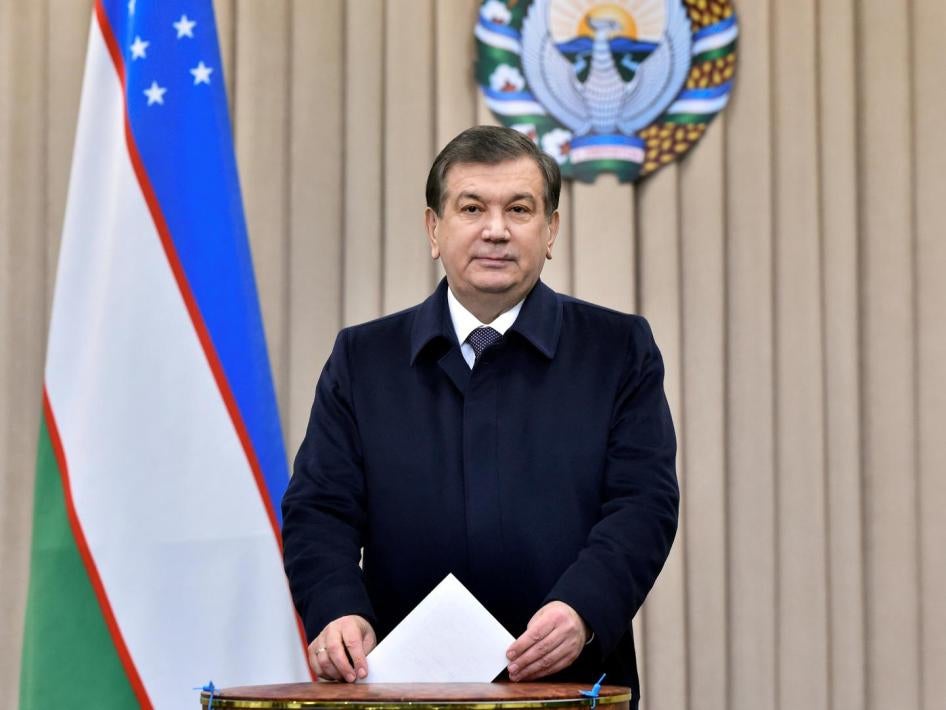This month Mirziyoyev will be inaugurated as Uzbekistan’s second president. He was officially declared the winner of the December 4, 2016, presidential election although serious restrictions and denial of basic rights prevented the elections from being free or fair.
The Organization for Security and Co-operation in Europe’s Office for Democratic Institutions and Human Rights (ODIHR) said that “while the election administration took measures to enhance the transparency of its work…the dominant position of state actors and limits on fundamental freedoms undermine political pluralism and led to a campaign devoid of genuine competition.”
Human Rights Watch urged Mirziyoyev and his administration to take the following steps:
Free Political Prisoners: Ensure the immediate and unconditional release of all those held on politically motivated charges, including political and civic activists, journalists, lawyers, and rights defenders, and allow them to continue their peaceful activities.
Cooperate with UN Rights Bodies: Reverse the government’s policy of non-cooperation with international institutions, particularly United Nations human rights mechanisms, by allowing the 14 UN human rights experts who have requested access in as many years to Uzbekistan.
End Torture: Take meaningful measures to end the torture and ill-treatment that are widespread in Uzbekistan and allow the International Committee of the Red Cross, along with other human rights groups, to operate normally in the country and monitor conditions at detention sites.
Remove Media Restrictions: Ensure genuine media freedom, including by ending the routine blocking of numerous internet websites and the harassment of journalists, and allow domestic and international media outlets, including those that have been forced to stop operating in Uzbekistan, to register and grant accreditation to foreign journalists.
Unshackle Civil Society: End the crackdown on independent groups and activists and allow domestic and international human rights organizations to operate without government interference, including by promptly re-registering those that have been liquidated or otherwise forced to cease operating in Uzbekistan, and issuing visas and accreditation for staff of international nongovernmental organizations.
Guarantee Freedom of Religion: Uphold Uzbekistan’s obligations to guarantee freedom of religion or belief, including by releasing religious believers imprisoned on overbroad “extremism” charges and relaxing the restrictions on religious worship and education.
End Sexual Orientation and Gender Identity Discrimination: Decriminalize consensual sexual relations between men and take steps to end homophobia and discrimination against the LGBT community.
End Forced Labor: End forced labor in the cotton sector, allow truly independent monitoring, involve independent nongovernmental organizations in assessments of the cotton harvest, and put an end to retaliation against independent activists who monitor the government’s practices in the cotton sector.
Allow Independent Investigation of the Andijan Massacre: Accept the recommendations by numerous governments to allow an independent, international inquiry to investigate the killings during a protest in Andijan on May 13, 2005, and communicate to the public a willingness to allow discussions and a critical examination of the Andijan events.
Human Rights Watch also said that Mirziyoyev and his government should allow Human Rights Watch staff, including its Uzbekistan researcher, to visit Uzbekistan to discuss these issues with the new administration. “We sincerely hope that your inauguration signals a new willingness on the part of the Uzbek government to engage with international human rights organizations,” the Human Rights Watch letter said.
“Uzbekistan faces serious economic, social, and security challenges,” Swerdlow said. “The real test for Uzbekistan’s new president will be whether he will carry out his campaign promises while improving respect for human rights.”







